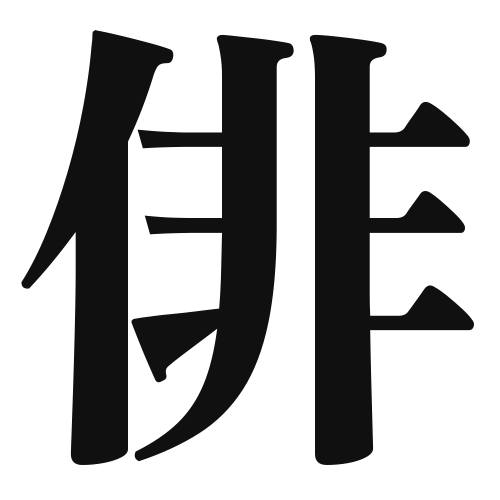1. Overview of Meaning
The kanji “俳” (hai) primarily means “actor” or “performer.” It is often associated with the performing arts, particularly in the context of theater and poetry.
2. Formation and Radical
The kanji “俳” is a phono-semantic compound (形声文字), which means it combines both a phonetic and a semantic component. The left part, “人” (hito), indicates that it relates to a person, while the right part, “非” (hi), contributes to the sound and meaning.
The radical of “俳” is “人” (hito), which signifies “person” or “human.” This radical is commonly found in kanji related to people or actions performed by people.
3. Examples of Usage
Common words and phrases that include “俳” are:
- 俳優 (haiyuu) – actor
- 俳句 (haiku) – a form of Japanese poetry
Example sentence in daily conversation:
「彼は有名な俳優です。」 (Kare wa yuumei na haiyuu desu.) – “He is a famous actor.”
4. Synonyms and Antonyms
Similar kanji with related meanings include:
- 演者 (enja) – performer, which is more general and can refer to anyone performing, not just actors.
Antonyms include:
- 観客 (kankyaku) – audience, which refers to those who watch performances rather than perform.
5. Cultural and Historical Background
The kanji “俳” is deeply connected to Japanese culture, particularly in the realms of theater and poetry. The art of acting has a long history in Japan, with traditional forms such as Noh and Kabuki.
Proverbs and idiomatic expressions that include “俳” often reflect the importance of performance and artistry in Japanese society. For example, “俳句は心の声を表現する” (Haiku wa kokoro no koe o hyougen suru) translates to “Haiku expresses the voice of the heart.”
